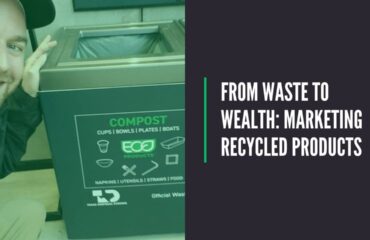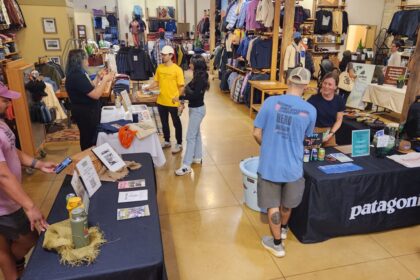
This past Saturday, I found myself in two very different corners of Austin’s sustainability landscape – one inside Patagonia’s Austin store during their Climate Progress & Pints Happy Hour, and the other hoping around downtown and East Austin with my friend Erin, canvassing local cafés to accept reusable cups as promoted by Austin Reuse Coalition (ARC).
Both moments were focused on small, local, and community-driven efforts – and they reminded me just how much meaningful climate action begins at the neighborhood level.
Connecting With Patagonia’s Environmental Grantees
Patagonia Austin hosted a casual, drop-in event centered around climate progress, local activism, and community connection. The afternoon blended refreshments, conversations, and a curated nonprofit tabling where attendees could ask questions, get involved through volunteering, and learn about local environmental work.
What stood out most was meeting the nonprofits Patagonia supports through Patagonia Action Works, their environmental grants program. Groups like Ecology Action, Austin Youth River Watch, Urban Roots, and Explore Austin showcased the breadth of climate and conservation work happening in the city – from empowering teens to protect waterways, to cultivating sustainable agriculture, to building mentorship and outdoor leadership pathways for youth.
Patagonia also shared highlights from their new Work-in-Progress environmental commitments report, reinforcing their long-standing dedication to transparency and accountability. It was refreshing to see a brand not only talk about climate responsibility but actively uplift the organizations doing the boots-on-the-ground work.
The energy in the store captured what I love most about Austin’s sustainability scene: collaboration, curiosity, and the belief that everyone, from global retailers to local nonprofits, has a role to play.
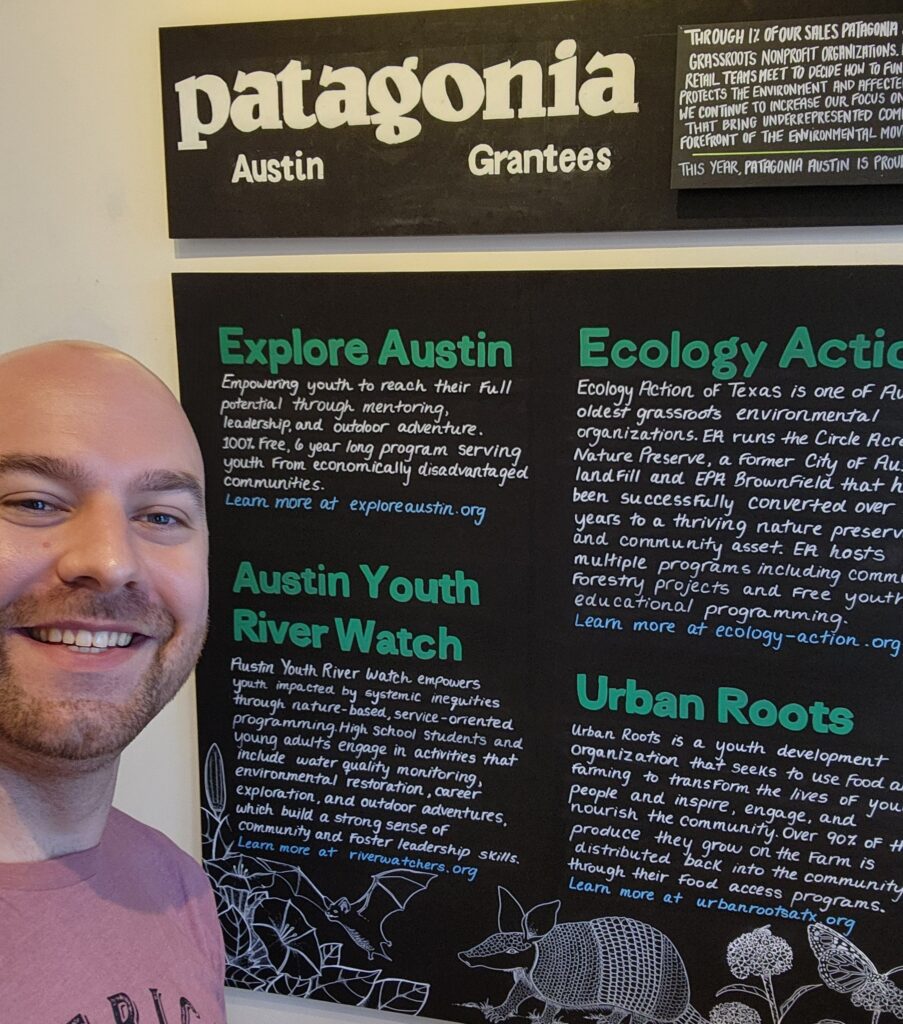
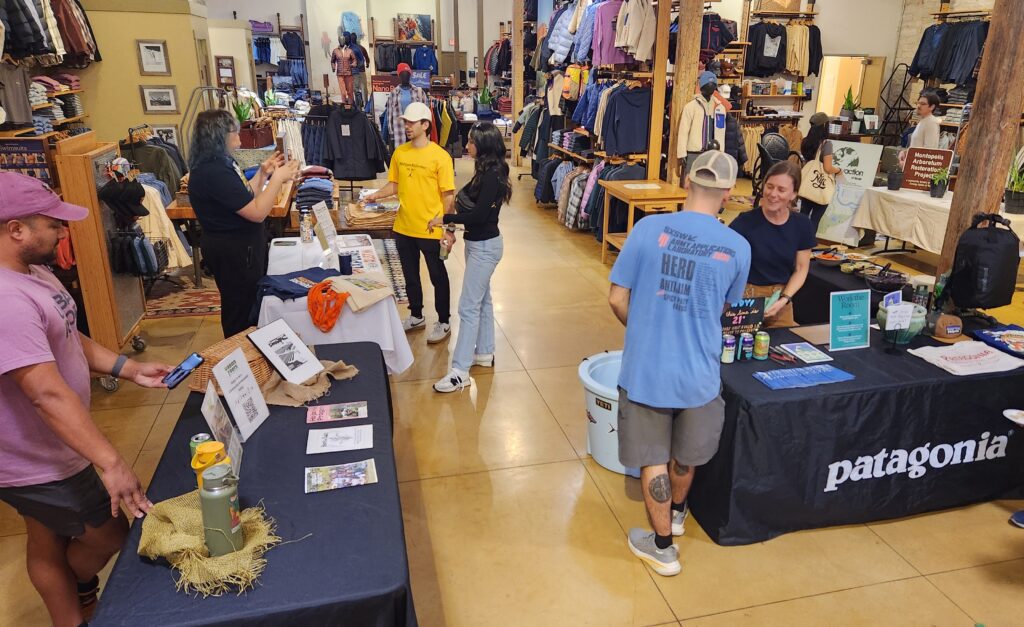
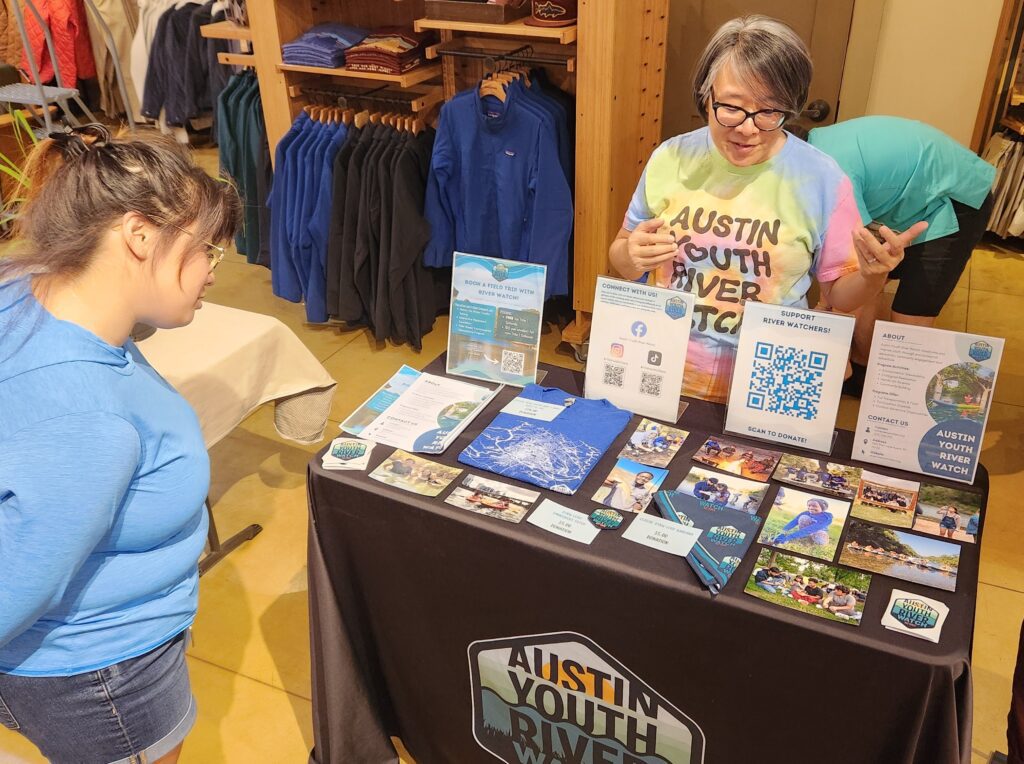
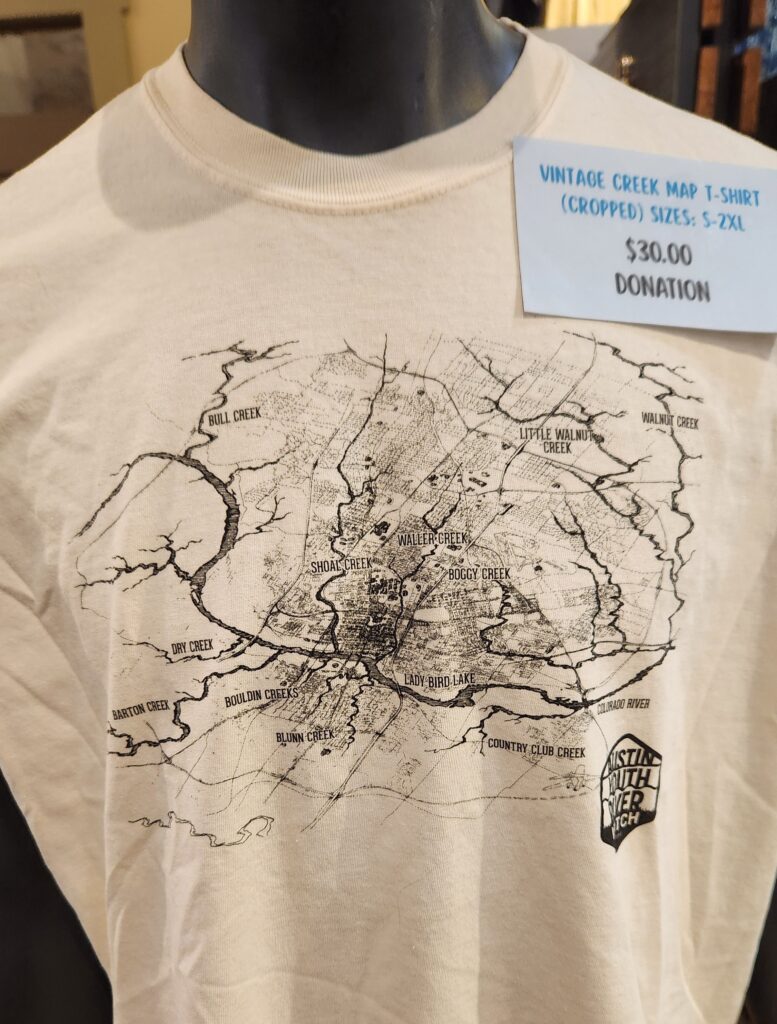
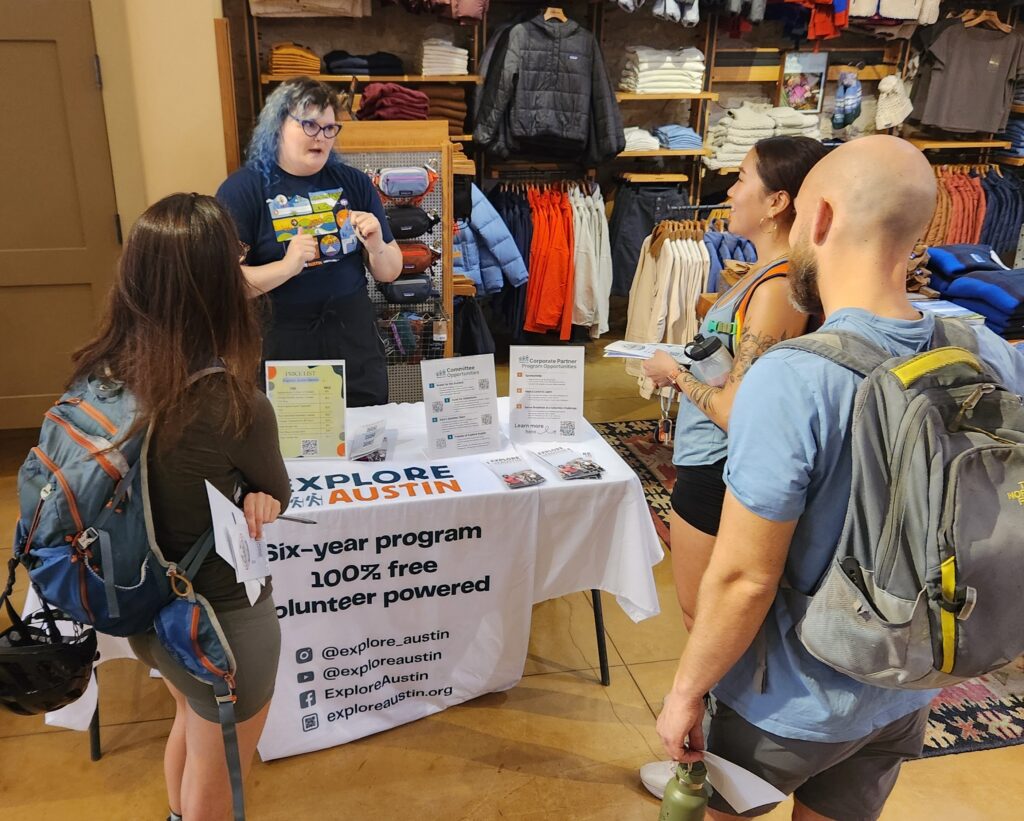
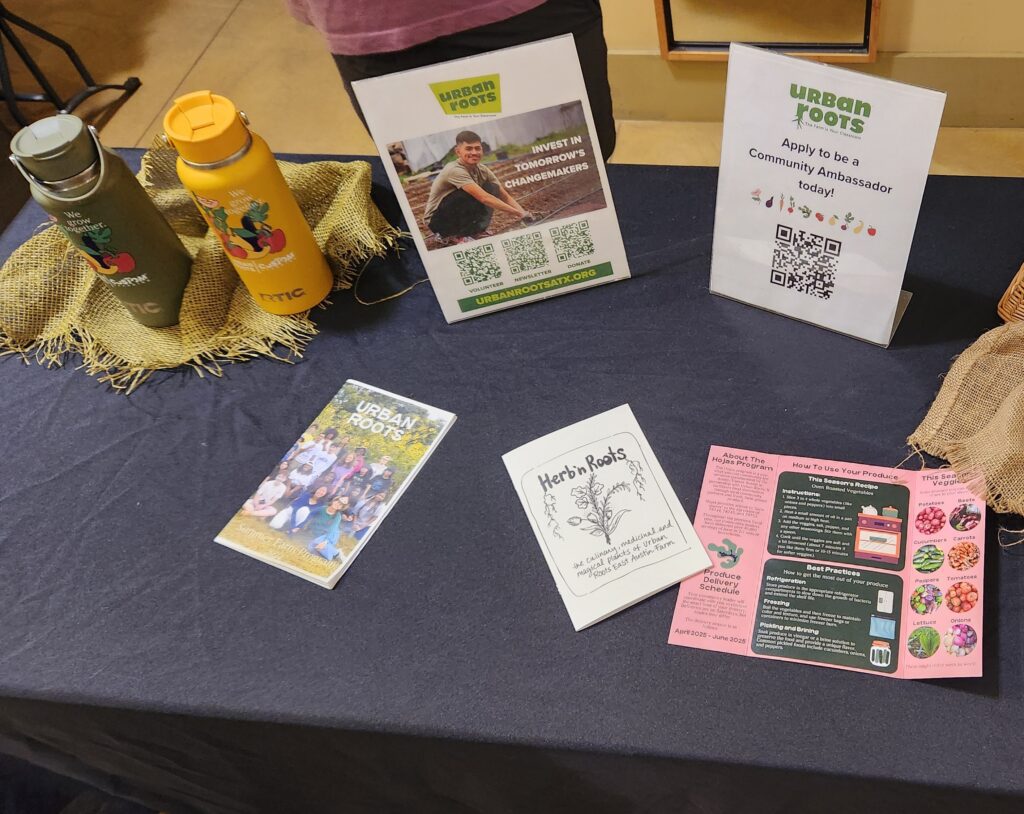
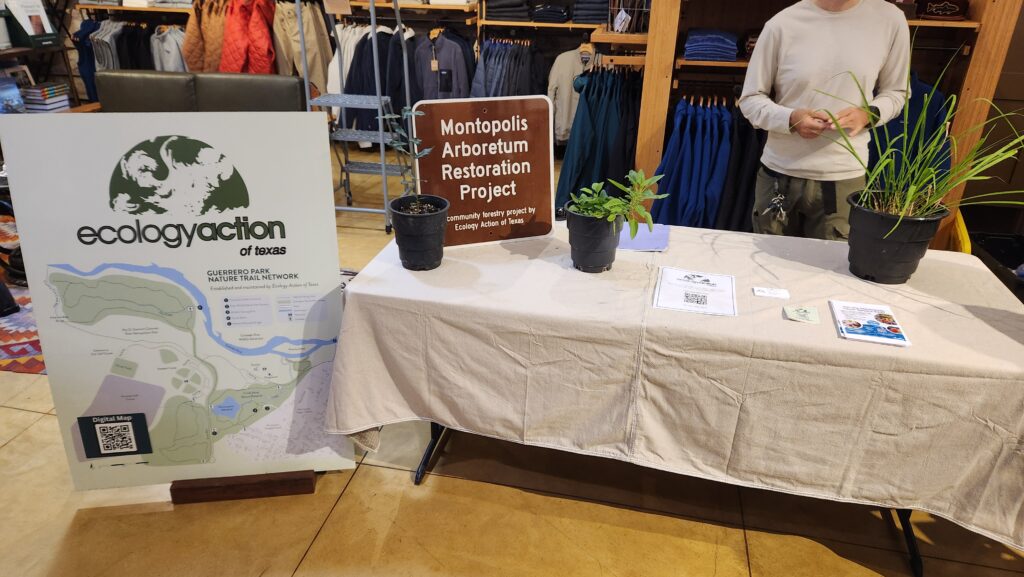
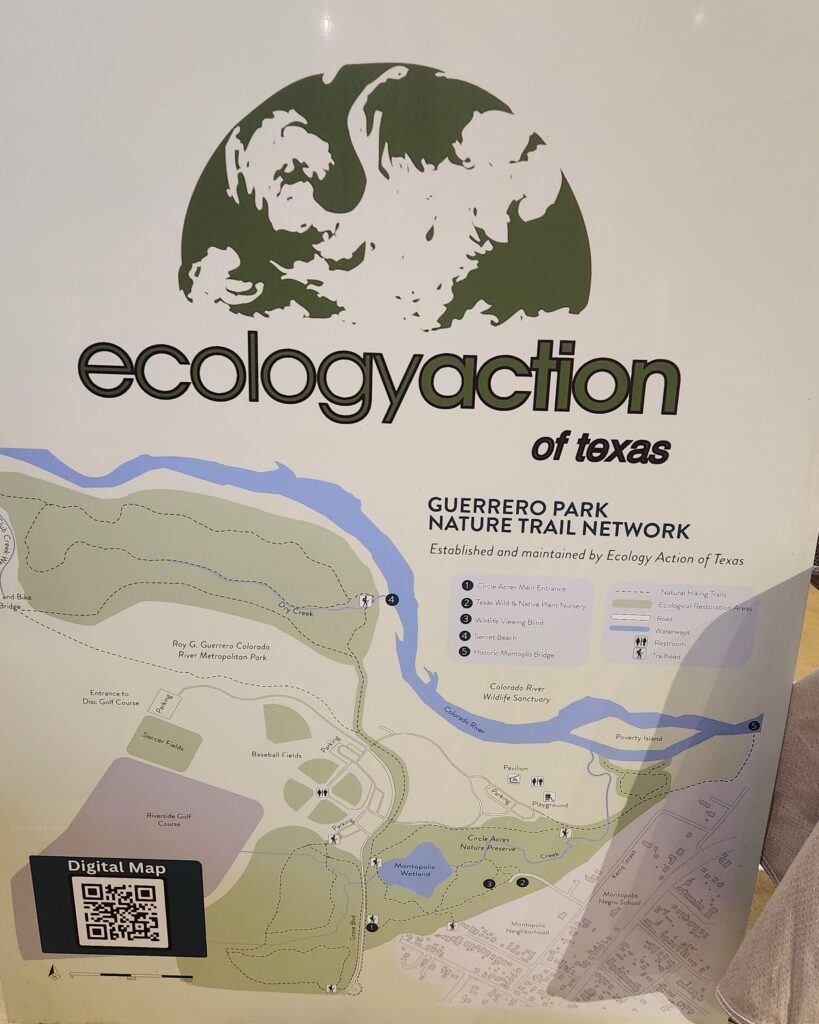
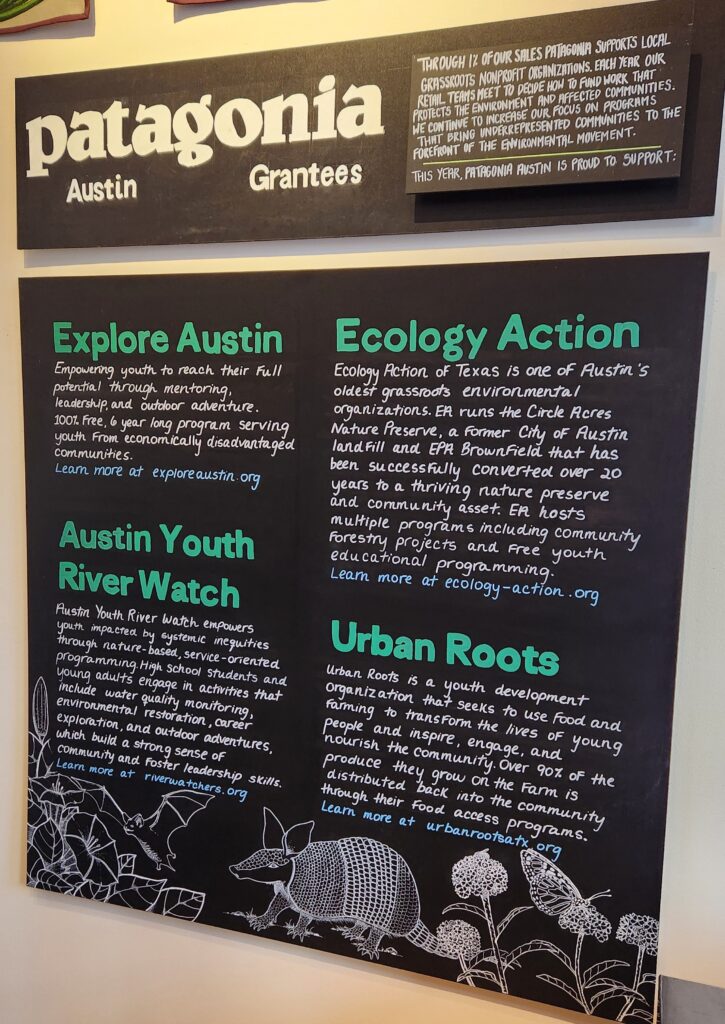
Reusable Cups with the Austin Reuse Coalition
Later that day, I joined my friend Erin to volunteer with the Austin Reuse Coalition, canvassing coffee shops across downtown and East Austin. Our goal? Talk with baristas, managers, and business owners about ARC’s reusable cup and BYO-friendly initiative, and share resources that help reduce single-use waste in the café sector.
What struck me most was how many shops want to reduce waste but aren’t always sure where to start. Sometimes it’s as simple as encouraging customers to bring their own cup, offering dine-in mugs instead of disposables, or adding ARC’s sticker to the front door so people know they’re BYO-friendly.
ARC’s mission highlights the everyday actions Austinites can take to support a circular economy:
- Bring your own cup, bag, containers, utensils
- Support cafés and restaurants that prioritize reusables
- Choose second-hand whenever possible
- Help businesses shift away from single-use norms through positive conversations
Traveling from café to café reminded me how change often happens – not through dramatic gestures, but through small, consistent nudges in the right direction.
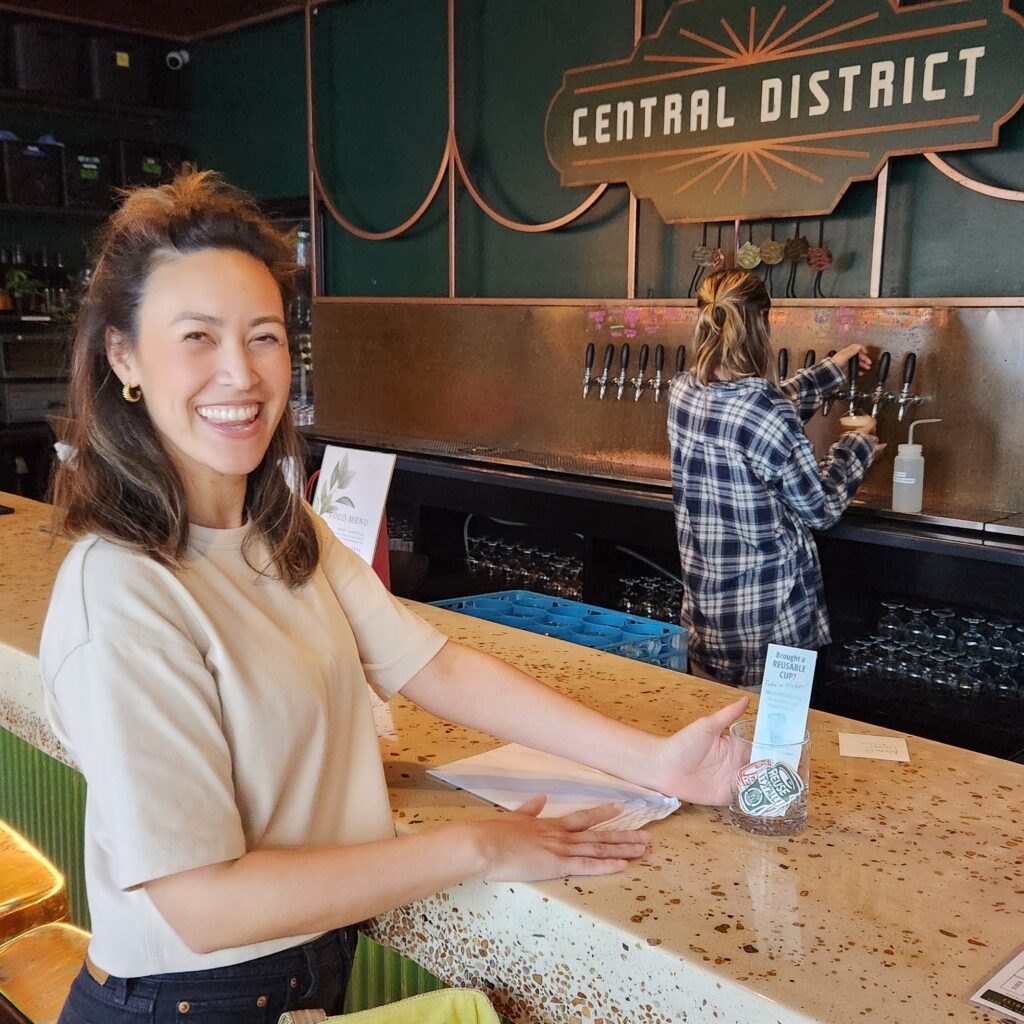
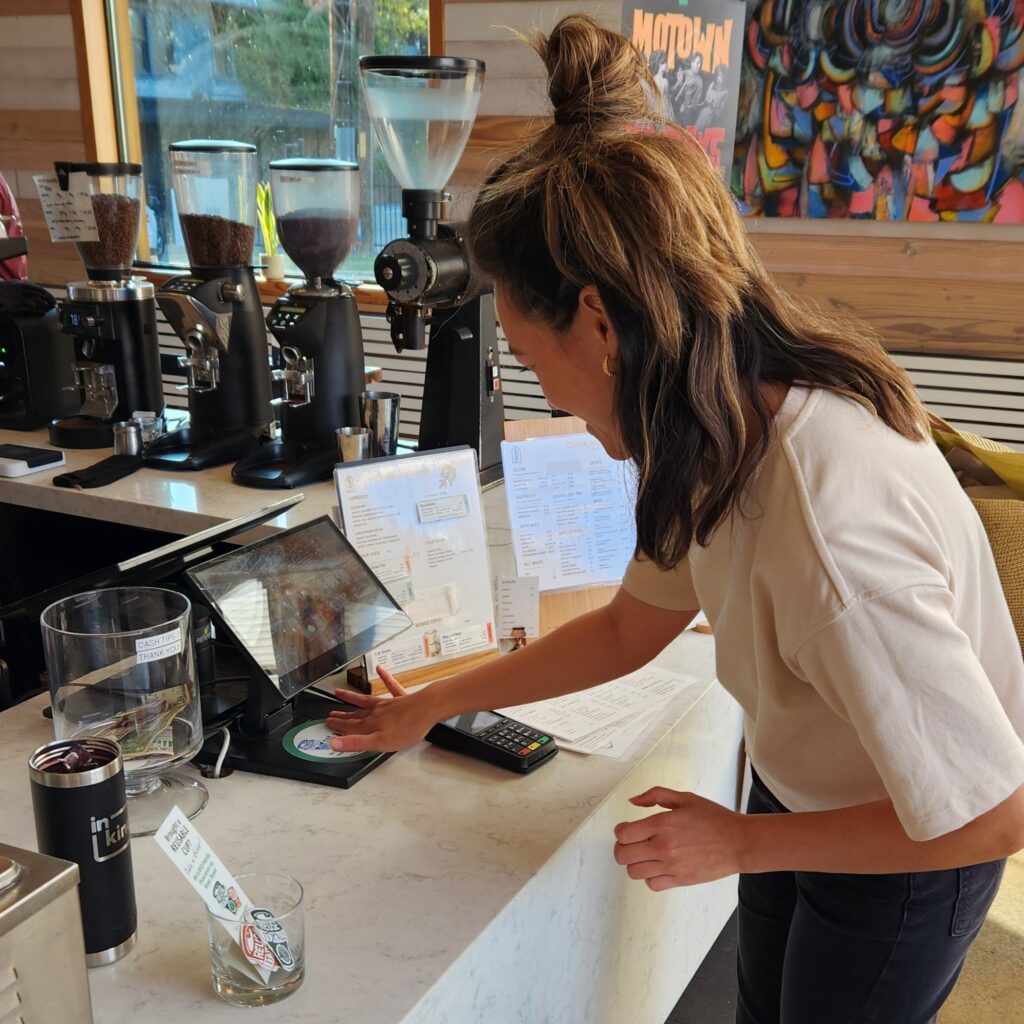
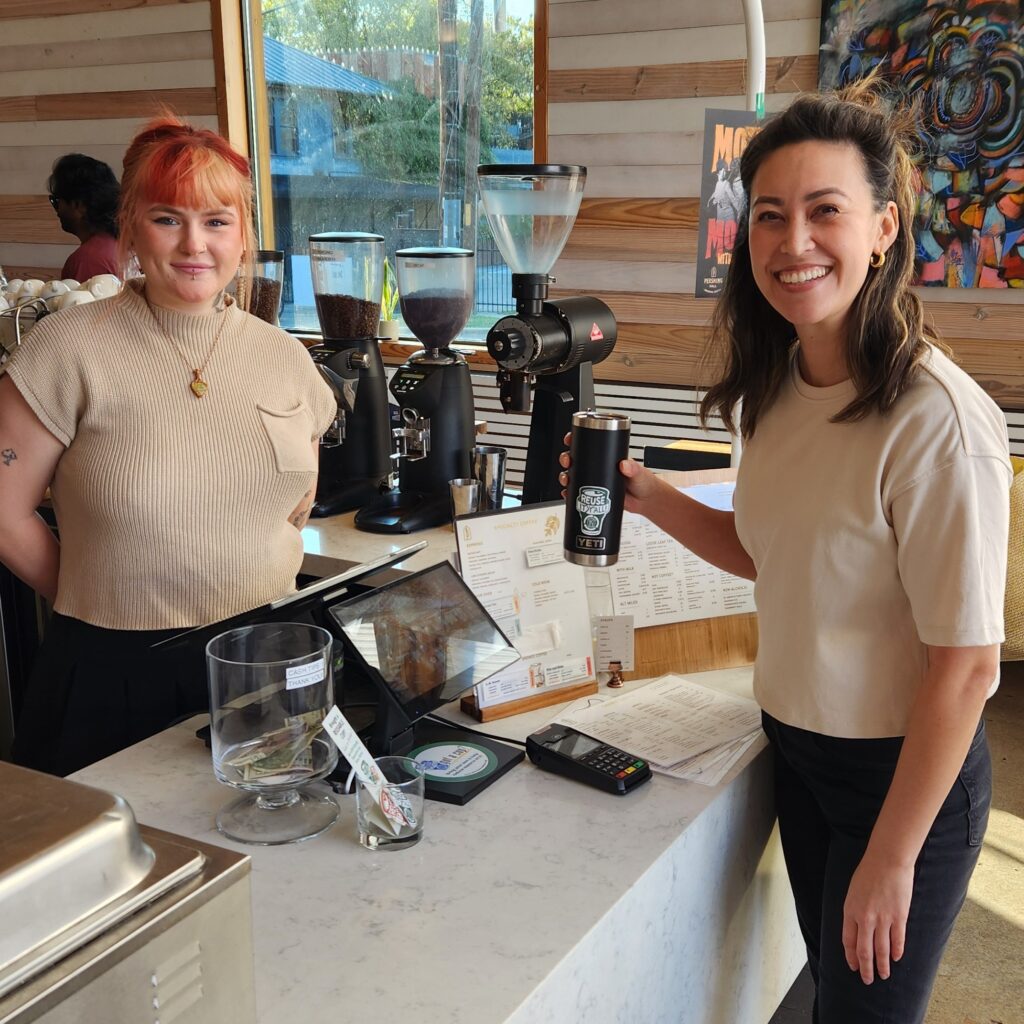
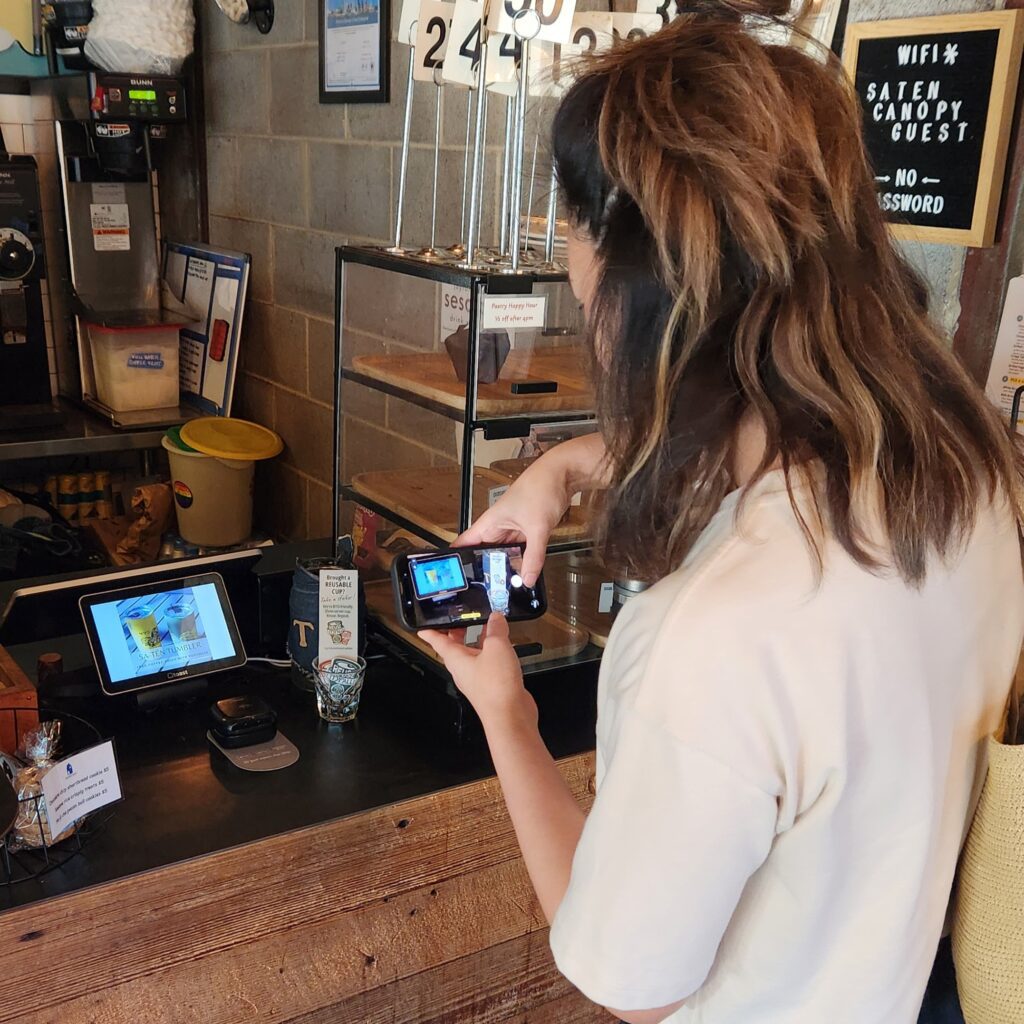
A Shared Thread: Community-Powered Sustainability
While these two experiences looked different, the underlying message was the same: local climate action thrives when people show up, whether by attending a community event, supporting nonprofits, or taking an hour to talk with a small business about waste reduction.
We often think of climate work as something big, lofty, or policy-driven. And yes, those pieces matter, but progress is also built through conversations at coffee counters, nonprofit booths, and neighborhood events that make sustainability feel accessible and human.
Austin’s environmental community is full of people who care deeply and act intentionally. From Patagonia’s grantees building long-term impact with youth to ARC volunteers nudging everyday habits toward reuse, these touchpoints show how collective action starts with individual steps.
And I’m grateful to keep taking those steps with this community!
If you want to get involved, check out:
Patagonia Action Works (to explore local nonprofits)
Austin Reuse Coalition (to support BYO culture and waste reduction)


